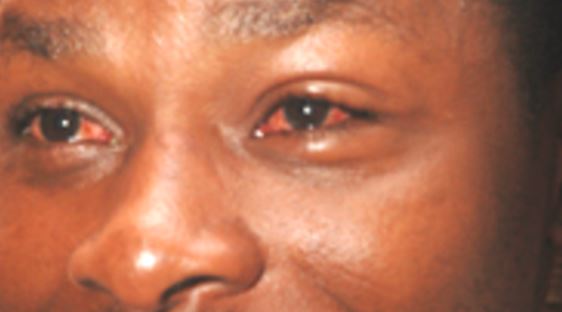Salt water, tea and honey do not cure red eye disease - doctor

By Farhiya Hussein |
ome coastal residents are turning to seawater to treat the disease but ophthalmologist Nadya Mustafa says there is no scientific basis for this.
There is no proof that ocean water cures or helps to treat red eye disease, an ophthalmologist has clarified, following reports that some Mombasa residents have resorted to this.
Kenya is in a race against time to protect the public from diseases including red eye, polio and the Rift Valley Fever, following outbreaks in various parts of the country.
Keep reading
The latest incidents of red eye disease have been reported in Nairobi (three) and Kisii (one), following the first one in Mombasa and a spread to Lamu and Malindi.
The disease is caused by viruses, allergens and bacteria. It is contagious and can spread through physical contact with an infected person or surface, and through the air when an infected person coughs or sneezes.
Some coastal residents are turning to seawater to treat the disease but ophthalmologist Nadya Mustafa says there is no scientific basis for this.
"I am a doctor. I go with evidence-based medicine. There is no proof so far that salt water, tea and honey help to cure the disease," he said. "Viruses are spontaneous. What we do is symptomatic relief - to splash the face or eyes with cold water or use ice cubes on the eyes," said Mustafa.
Mustafa added that scientists are seeking to establish whether the prevalence of the virus could be linked to increased humidity levels in the coastal region as a result of climate change.
"Cases have been reported in other counties like Nairobi but they are very few compared to the Coast region," he said.
Residents' claims
Mombasa residents who believe the ocean has natural healing qualities have been washing their eyes using its water.
This unconventional practice has gained traction within the community, with some attributing relief to the saline content and purported soothing effects of seawater.
Likoni resident Saumu Beja says every time she is at the Likoni crossing, she has to wash her face using the water there.
Beja, who confirmed her infection on Monday after experiencing itchy eyes, said she believes the salty ocean water heals the infection faster than medication. She claimed she could not see on Tuesday as her eyes were swollen but that she started healing after using the ocean water.
"Today is my fourth day of washing my face using ocean water. I have a two-litre bottle which I ensure is always full. I took sick leave from work to go to the hospital but I did not go. So far I am recovering so I will just go for the hospital letter which is needed at work," she said.
Another resident, Juma Hamisi, says he used tea leaves when he got infected but turned to ocean water on a friend's recommendation.
"I used tea leaves for about three days but did not recover. My neighbour one day advised me to try the ocean water so I sent my son to fetch five litres for me. The water has helped me and my family," says Hamisi.
Mwanaharusi Kadida is using the salty sea water to prevent the disease.
"I am not infected but whenever I use the ferry I wash my face with the salty ocean water," said Kadida.
The disease is characterised by red, watery eyes and is most likely due to the adenovirus (epidemic serotype), which spreads very fast but rarely causes long-term complications to the eyes.
The disease is self-limiting, meaning it can be treated at home or can resolve on its own. As such, Government Spokersperson Isaac Mwaura earlier told the public that there is no cause for alarm.



















